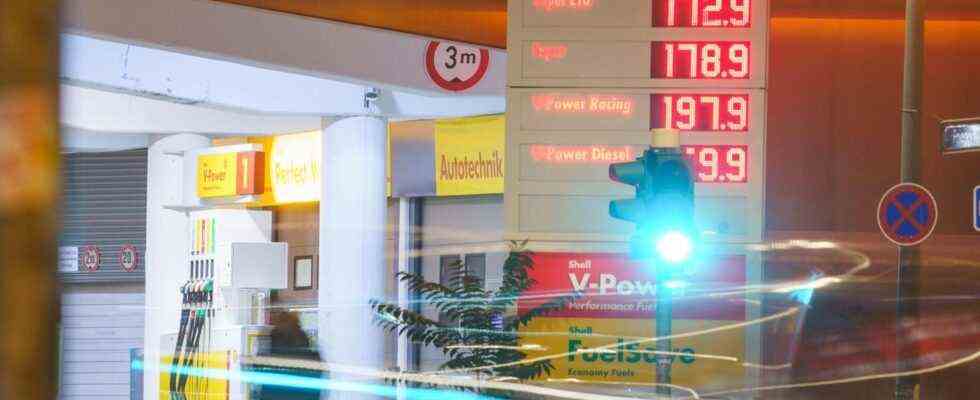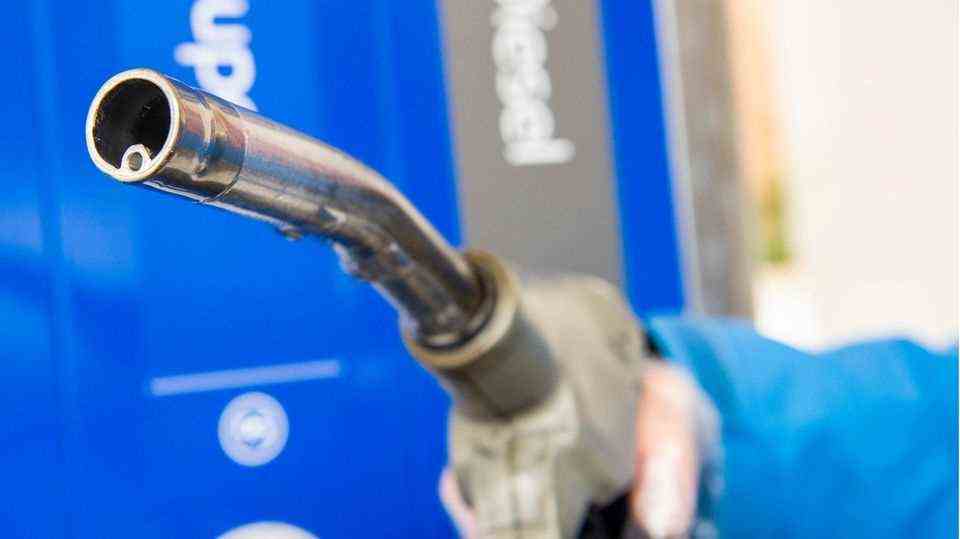Energy prices
Record prices at the gas station – but gasoline and diesel are becoming even more expensive
Car drivers are currently not happy with a look at gasoline prices.
© Frank Rumpenhorst / DPA
Diesel has never been so expensive – tax hikes and rising oil prices are to blame. Winter has not started yet. There is no end in sight to the price spiral.
The average price for diesel reached 1.555 euros per liter on Sunday, according to the ADAC. It has thus reached an all-time high and trumped the previous record of EUR 1.554 per liter on August 26, 2012. It’s not quite that far with gasoline. Super of the E10 variety reached 1.667 euros per liter on Sunday. There are still 4.2 cents short of the record of 1.709 euros on September 13, 2012.
Several factors are responsible for the high prices. Some of these are temporary, so they may be weaker in the future. Others will make fuel prices more expensive over the long term. These include taxes, which make up a large part of consumer prices. In the case of diesel, this is currently around 25 cents VAT and 47 cents mineral oil tax. In addition, there are 6 to 8 cents from the carbon dioxide price that has been charged since the beginning of the year. This additional price will increase in the future and will burden consumers in the long term. Incidentally, the price increase in Germany has nothing to do with the situation in Great Britain. In the UK there are queues and panic buying because the petrol stations cannot be delivered because many truckers have left the country. Brexit in combination with exemptions during the Corona crisis has meant that they have returned to their home countries. And now there are not enough drivers for heavy trucks available in the UK job market.
Post-Covid price rally
The oil price is reaching new highs worldwide. The change to the Corona year 2020 is particularly noticeable here, which generally resulted in very low energy prices due to the collapse in demand. The increase is correspondingly painful. With the economic upturn, the oil price has reached a multi-year high – but not yet an all-time high. As with other goods, it is becoming noticeable that the global supply chains are not keeping pace with the skyrocketing demand. And obviously the oil companies did not expect an increase in sales on this scale either.
The economy meets the beginning of the heating season, during which the demand for heating oil also rises. Winter set in earlier than usual in the northern hemisphere and a colder course is also expected. The demand for heating oil will be correspondingly high.
Expensive gas leads to an increase in the price of oil
Experts believe that the rise in the price of crude oil has not yet peaked. A three-year high was hit over the weekend at $ 80 a barrel, Kamco Invest said in its monthly oil market report. Kamco’s analysis shows that oil demand has not yet reached its full peak as some consumption segments, such as industrial fuels and jet fuel, have not yet reached pre-Covid-19 levels. The increasing demand, however, meets only slight increases in the production volumes. In contrast, stocks of diesel and gasoline have fallen to their lowest level since 2014.
The high gas prices are also affecting the oil market, Kamco said. “In addition, high gas prices and coal shortages have led power generation companies in several parts of the world to switch to crude oil-based fuels.” The failures at the gas and coal-fired power plants are compensated for by gas substitutes such as diesel and heating oil. There is increasing demand for diesel in the Asian market, which has led to a shortage in Europe. Should there be major power outages in Asia by the suppliers, the demand for diesel will continue to rise by leaps and bounds, as many consumers will then switch to electricity from generators. Analysts are now forecasting an oil price of 100 US dollars per barrel, at least at times, and this will also be noticeable at German petrol stations. At 1.55 euros for diesel and 1.66 euros for gasoline, the end of the flagpole is unlikely to have been reached.



